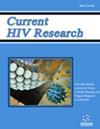Longitudinal Assessment of Virological Failure and Antiretroviral Drug Resistance among Treatment-naive Subjects Living with HIV.
IF 0.8
4区 医学
Q4 IMMUNOLOGY
引用次数: 0
Abstract
INTRODUCTION Human immunodeficiency virus (HIV) infection, the etiological agent of acquired immunodeficiency syndrome (AIDS), is a serious public health issue. Therapeutic measures have been successful in increasing the survival and improving the quality of life. However, some treatment-naive subjects living with HIV present resistance-associated mutations as a result of late diagnosis and/or mutant strain infections. The objective of this study was to identify the virus genotype and assess the antiretroviral resistance profile based on the results of HIV genotyping in treatment-naive subjects living with HIV, after six months of taking antiretroviral therapy. METHOD This was a prospective cohort study on treatment-naive adults living with HIV attending a specialized outpatient clinic in southern Santa Catarina State, Brazil. The participants were interviewed and had blood samples drawn. The genotypic antiretroviral drug resistance profile was examined in patients with detectable viral loads. RESULTS 65 treatment-naive subjects living with HIV were recruited for this study. After six months of taking antiretroviral therapy, resistance-associated mutations were observed in 3 (4.6%) subjects living with HIV. CONCLUSION Subtype C was identified as the circulating subtype in southern Santa Catarina State, and L10V, K103N, A98G, and Y179D were the most common mutations found in treatment-naive subjects.未接受治疗的HIV感染者病毒学失败和抗逆转录病毒药物耐药性的纵向评估。
引言:人体免疫缺陷病毒(HIV)感染是获得性免疫缺陷综合征(AIDS)的病原体,是一个严重的公共卫生问题。治疗措施在提高生存率和提高生活质量方面取得了成功。然而,一些未接受治疗的HIV感染者由于诊断晚期和/或变异株感染而出现耐药性相关突变。本研究的目的是在接受抗逆转录病毒治疗六个月后,根据未接受治疗的HIV感染者的HIV基因分型结果,确定病毒基因型并评估抗逆转录病毒耐药性。方法:这是一项前瞻性队列研究,对象是在巴西圣卡塔琳娜州南部一家专门门诊诊所接受治疗的未接受治疗的艾滋病毒感染者。参与者接受了采访并抽取了血样。检测病毒载量可检测的患者的基因型抗逆转录病毒药物耐药性。结果:本研究招募了65名未接受治疗的HIV感染者。在接受抗逆转录病毒治疗六个月后,在3名(4.6%)艾滋病毒感染者中观察到耐药性相关突变。结论:C亚型被确定为圣卡塔琳娜州南部的循环亚型,L10V、K103N、A98G和Y179D是在未接受治疗的受试者中发现的最常见的突变。
本文章由计算机程序翻译,如有差异,请以英文原文为准。
求助全文
约1分钟内获得全文
求助全文
来源期刊

Current HIV Research
医学-病毒学
CiteScore
1.90
自引率
10.00%
发文量
81
审稿时长
6-12 weeks
期刊介绍:
Current HIV Research covers all the latest and outstanding developments of HIV research by publishing original research, review articles and guest edited thematic issues. The novel pioneering work in the basic and clinical fields on all areas of HIV research covers: virus replication and gene expression, HIV assembly, virus-cell interaction, viral pathogenesis, epidemiology and transmission, anti-retroviral therapy and adherence, drug discovery, the latest developments in HIV/AIDS vaccines and animal models, mechanisms and interactions with AIDS related diseases, social and public health issues related to HIV disease, and prevention of viral infection. Periodically, the journal invites guest editors to devote an issue on a particular area of HIV research of great interest that increases our understanding of the virus and its complex interaction with the host.
 求助内容:
求助内容: 应助结果提醒方式:
应助结果提醒方式:


